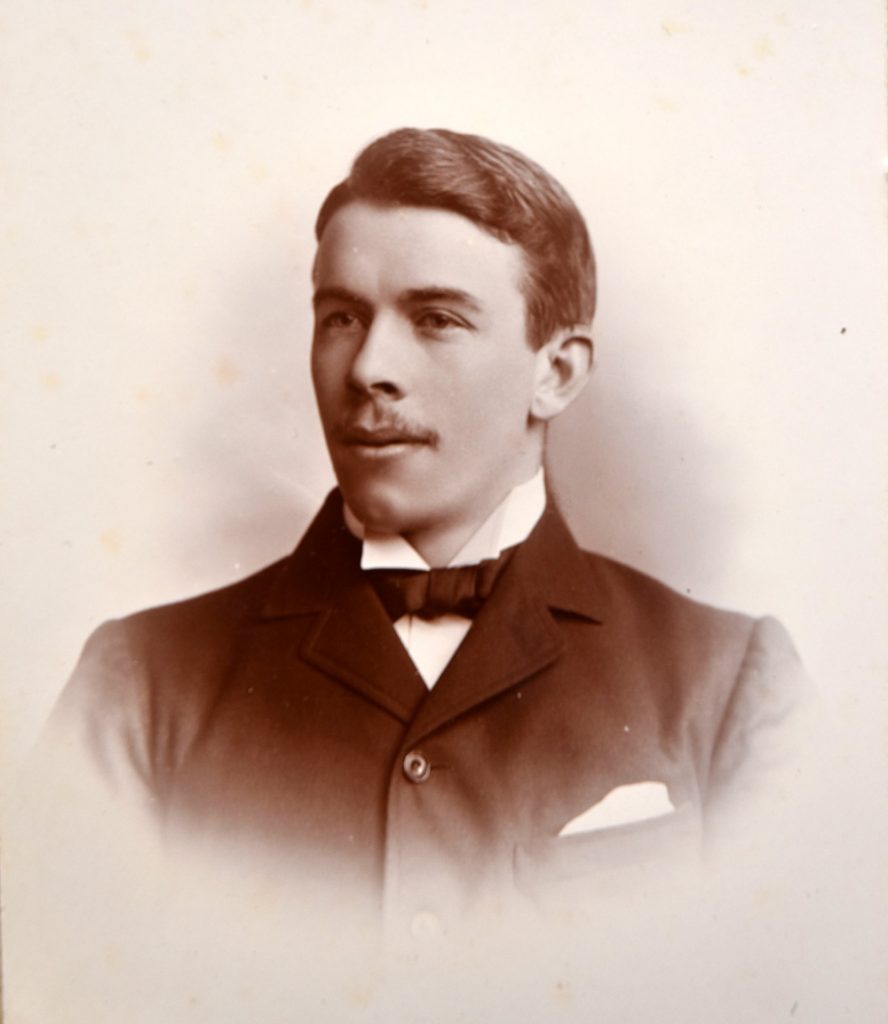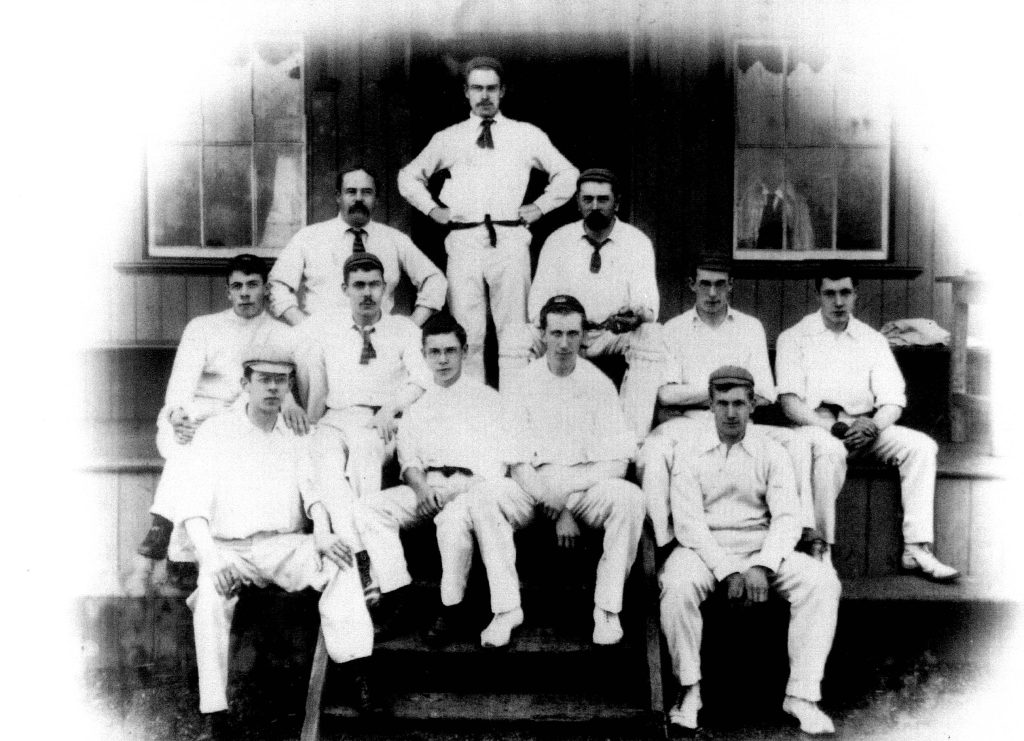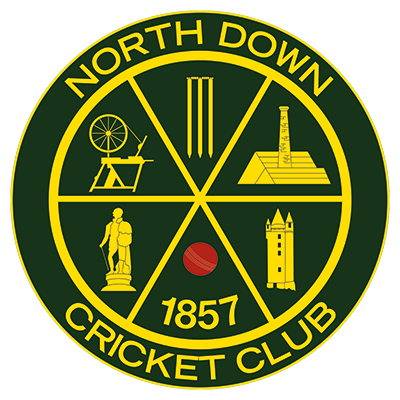The following article, originally published in his book ‘Gone, but not forgotten’, is reproduced with by permission of the author, Clarence Hiles.
Outstanding lawyer who became Lord Chief Justice, North Down CC Captain, NCU President and ICU President. Amongst this, other interests included sailing, golf, church and public affairs.

Thomas Andrews, ‘Thomas of Ardara’, and his wife Eliza, raised four special sons that each made a significant impact on Irish history. One was a mill owner that became Prime Minister of Northern Ireland, another a brilliant lawyer that became Lord Chief Justice, another an outstanding shipbuilder that will never be forgotten, and the other the most eccentric character in Irish cricket. Each in their own way was remarkable, but James Andrews was a particularly exceptional individual.
James was born on 3rd January 1877, the 3rd son. He was schooled at his home in Ardara House, and then went to the Royal Belfast Academical Institution (Inst.) from 1889 to 1894. He was an outstanding scholar and won several prizes. He also took a great interest in sport, particularly cricket and left to go to St. Stephen’s Green School in Dublin, prior to enter to Trinity College in 1895.
Throughout his adolescent years he was friendly outgoing youngster and among his many sports he loved cricket, rugby, hockey, shooting and sailing. He was weaned at an early age at cricket, and spent many hours with his brothers at Ardara and at The Green. He was warmly accepted in the North Down fraternity and met, and played with some of the greatest players in the Province. He was big youngster and at the age of 10 he entered into the adult world, playing for the Andrews’ XI against Milling’s XI alongside Tommy Graham, Sam Davidson and his brothers John Miller and Tommie. The Andrews’ XI, all members of the family, featured annually against North Down in the 1890s, and usually won. James’ games were often sporadic, as school took precedence and, of course, getting a place at North Down was difficult as the team was strong during the 1890s.

James was a modest performer at best in his early years. He was often out for low scores and, although he bowled occasionally, it was rare. In 1894 North Down won the NCU Junior Cup against Springfield and James scored 19 and the a second innings ‘duck’.
James played 9 matches in 1895 after returning from school, but when he started at Trinity College his lifestyle changed. Although he played cricket at the university, he was a dedicated student and completely focused on a legal vocation.. He was a brilliant pupil with an incisive legal brain, that led to a distinguished legal career. When exams finished each year, he returned to Ardara and restarted his sport, including cricket at North Down with his brothers. He played in the historic win against Cliftonville in 1896 resulting in both clubs sharing the inaugural Senior League Championship. One of his favourite pastimes was sailing at Whiterock Bay close to Comber, the Andrews’ holiday retreat at Braddock Island.
In 1897 he added a milestone in his cricket career winning the Senior Challenge Cup when North Down defeated North of Ireland. James scored only a few runs but it didn’t matter as Oscar Andrews gave a virtuoso performance with a 73 and 100 and Willie Turner took 6 wickets in each innings. The following year he added another Senior Challenge Cup victory against Ulster but again had two low scores.

Despite his studies James played more cricket at Trinity in 1898. The standard was high as this was the ‘Golden Age’ of Dublin University CC played in the beautiful surroundings at College Park. He played for the 1st and 2nd XIs along with some of Ireland’s finest and toured to Gloucester and Warwick with limited success. For two years he served on the University CC Committee.
His best years followed at North Down and despite his hectic schedule at Courts and he made significant contributions at North Down, NCU and Irish Cricket. The ‘Old Brigade’ retired at North Down and Oscar Andrews’ move to North of Ireland changed the balance of power in the Province and James was part of the rebuilding in Comber where he became Captain from 1902 until 1907 and in 1909. He was the Chairman of the club from 1910 to 1920 through the tough times of WW1.
Leadership improved his batting and he won the club’s 1st XI prestigious batting award in 1904 and 1906 scoring 4 half centuries in the Senior Challenge Cup including a 97 against Ulster in the 1909 Final. He played in 10 Cup Finals winning 4 and although under his captaincy they lost 4 Finals, they did win the Senior League in 1906.
He was a member of the NCU Junior Committee and later the Senior equivalent and was instrumental with brother Willie in rewriting the NCU Rules in 1926. He was elected President of the NCU in 1927/28 and President of the Irish Cricket Union in 1929.

Throughout his life he was a wise counsel for brother John Miller during the turmoil of John’s politics prior to the formation of Northern Ireland in 1921, 2 World Wars, and Prime Minister from 1941 to 1943.
James’ legal career was unsurpassed. He received a host of honours and awards including Lord Chief Justice in 1937, and Baronet in 1942. He was also Chairman of the Ulster Savings Committee from 1939 to 1946.
He was a keen golfer and played regularly at Mahee Island GC and was Captain at Scrabo GC from 1926 until 1928. He played Rugby at Trinity and was on the panel when they played Cambridge in 1899.
Cricket was his first love and in later years visited The Green accompanied by his loyal driver Jack McGreeghan. His spent most of his home life at ‘Eusemere’ on the outskirts of Comber and was a devoted member of the Non Subscribing Presbyterian Church. He died on 18th February 1951 age 73 and is buried in the church’s adjoining grounds.
He was epitomised as ‘a good and fair judge, tempered with mercy.’
‘Gone but not forgotten……Sir James Andrews’

